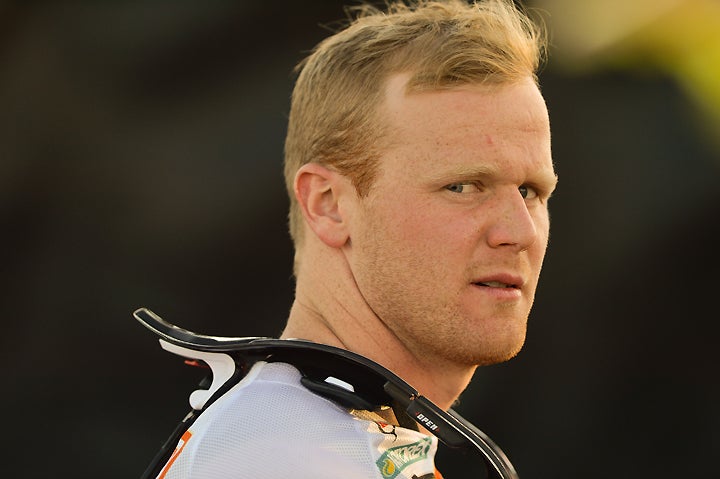
Trey Canard is simultaneously one of the most popular and most polarizing racers on the AMA Pro Motocross and Supercross circuit. He’s spent a lot of years in the 450cc class injured since he moved up following the 2010 season, but when he’s been healthy and able to stay out of the dirt, he’s won more races than all but a very select few racers in the class.
Because of his crashes and his injuries, Canard has become a bit of a punching bag for pundits, fans, and even occasionally his fellow racers, and because of his devout Christian faith, Canard has been the rope in a bit of a tug-of-war between those who want him to continue proselytizing and those who want him to shut up about it. Well, he’s made some changes over the past year, and the most obvious of those changes is that after 10 years racing for Honda, he made a switch to Red Bull KTM for the 2017 season. But that’s not all. We caught up with him about it over a phone call to his native state of Oklahoma to find out what’s happening out in Tornado Country.
Steve Cox: You spent 10 years at Honda, and I’m sure you knew everybody almost like they were a family. What went into deciding to make the change from Honda to another brand?
Trey Canard: It was an interesting sequence of events. They let me know really early that I either had an option to be a test rider/spokesperson for Honda, or I could find a job somewhere else. So, I respected that. I know that things with Kenny [Roczen] probably happened really early, and I wasn’t performing well at the time. Last year definitely wasn’t a highlight year for me–it was probably one of my least-performing years, I guess you can say, so I get it. They had invested over a long haul with me, and I hadn’t produced the way that they wanted. That’s no one’s fault. There’s nothing really harmful to be said. It’s just they’ve got to take care of business the same way I take care of mine, and unfortunately I just didn’t fit into their plans. It is what it is. Hopefully they’re happy with their decision, and I know I’m very happy with mine. I wish them the best.
Steve Cox: So, you figured you weren’t done racing, right?
Trey Canard: Yeah… It was interesting because the first part of the year, everything was good; I’d had a great trip to Japan and that kind of thing, so I really planned on finishing my career at Honda. But then the first six or seven rounds of supercross went horrifically, and by then it was March, and I already had an idea… I knew I needed to look out for myself, so I’d already made some calls and talked to some people to let them know, ‘Hey, I’m available as of right now.’ So, I wanted to make sure all my bases were covered.
Steve Cox: You ended up at KTM, and I don’t think you’d ridden a motorcycle with a steel frame since you were on Superminis or something, so what was that transition like?
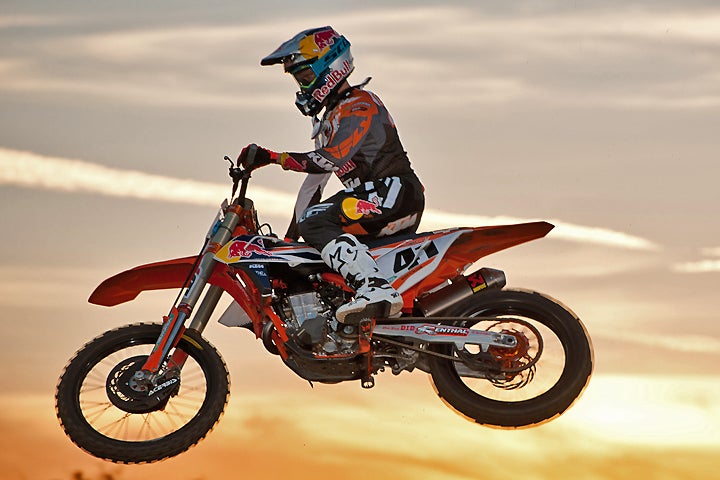
Trey Canard: It was different, but one part that was maybe a good thing is that there at the end, I’d had a practice incident and had a concussion, and I wasn’t able to ride for a pretty good chunk of time–6 or 8 weeks–so Honda had already taken my bikes back and everything by the time I was ready to ride. So, I didn’t ride until I had my KTMs, and my first day riding, I hadn’t ridden in a while, so it was like a fresh start for me. It wasn’t like one day I rode a Honda and the next day I rode a KTM. It’s difficult to really compare the two in that way, but it’s different, for sure. It’s different even riding it down the road. KTM has done such a good job with that bike, and obviously it’s succeeding around the world, so obviously I love it.
Steve Cox: Have you considered the idea that maybe there’s added pressure now? Because one way to look at this would be that you were hurt a lot on Hondas, and now you’re on KTMs, so if you don’t win here, or if you get hurt again on a KTM, then the problem is you. Does that make sense?
Trey Canard: I honestly don’t care what people think anymore. They can think what they want to think. At the end of the day, I ride because there are people around me who believe in me, and obviously I believe in myself, and I feel like this is a good place for me to be. It’s really easy for people to sit on the sidelines and make assumptions and have comments about me and other riders, and there are no consequences for them because they’re usually behind a computer keyboard or sitting on the sidelines. So, for me, at this point, there are people who have opinions about me, and I really don’t care anymore. I’m here to go do my best, and if I succeed or if I fail, I’ve done my best, so what more can anyone ask from themselves?
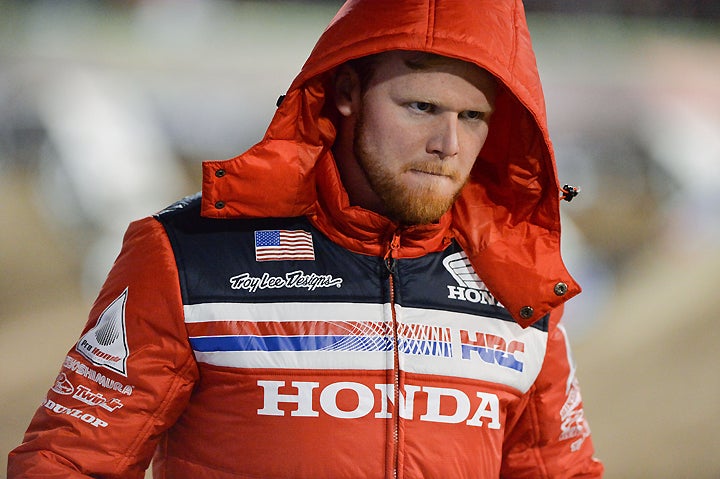
And for me, too, it’s almost less pressure, because you go from Honda and… I’m not saying I’m better or had more credibility than [Honda teammate] Cole [Seely], but in a lot of ways I was the guy there. That’s a lot of pressure to carry around on yourself. Going to KTM, I’m not the guy, and I’m aware of that, and I’m okay with it. I find it almost a little bit of an easier environment for me to be in. It’s less pressure for me.
Steve Cox: So, you’re saying that if you take away public perception as a thing you care about, the only pressure you get is the pressure you put on yourself, right?
Trey Canard: Yeah. I mean, the thing is that you can’t win with people. I’m never going to please people. I’m a person. We’re all people, us racers and athletes in general. People can make assumptions; it’s part of being a fan and talking about it and that sort of thing. So, I don’t want people’s words to impact the way that I act, or the way that I ride, or the way that I train, or the way that I live my life, because they’ll never know the full picture of who I am and what I’ve been through. I just don’t want to let them have any power over the way that I live or the way that I do my job.
Steve Cox: Do you have to lay ground rules for the people around you to not report back to you what other people have said or anything like that?
Trey Canard: No, I think it’s important to be able to hear things and be able to dismiss them. At the end of the day, you’re never going to protect yourself completely from what people are saying. You’re going to hear about it somehow. I mean, you could tell me something right now, and I don’t know what it would be, but I’d have to be able to discern what’s true and what isn’t. And what’s true for me is what I know, and what I’m seeing, and what I’m living every single day. For people to have a perception of who I am is fine, but it’s not the truth.
Steve Cox: You’re growing up, Mr. Trey!
Trey Canard: I’m trying, man!
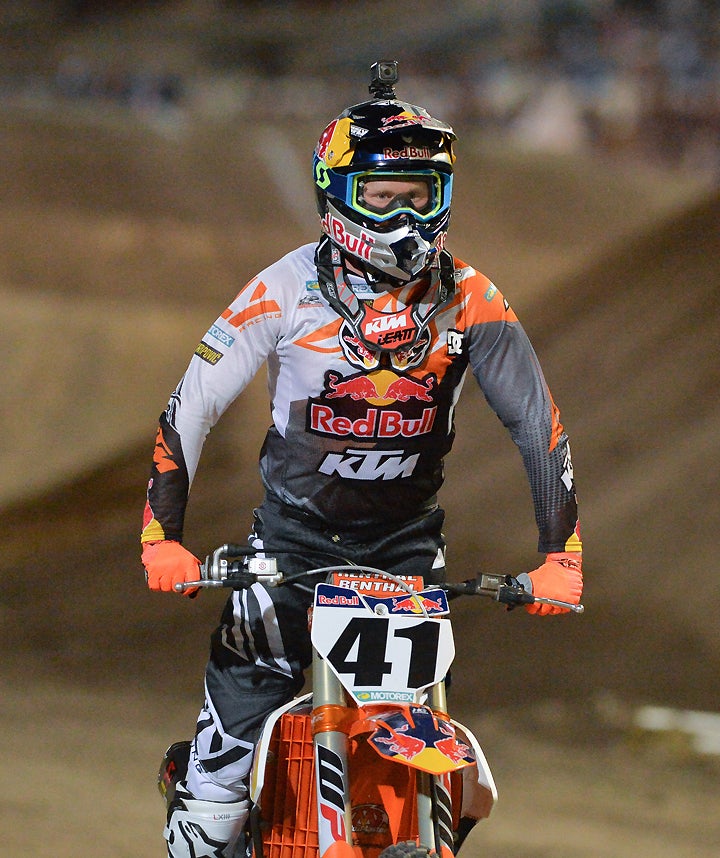
Steve Cox: People complain about getting older, which I never really understood because you have two options in that department, and getting older is by far the better option, but it seems like you’re seeing the benefits of getting older now, too…
Trey Canard: Yeah, for sure. There are parts of getting older that are great!
Steve Cox: How’s doggie-fatherhood treating you?
Trey Canard: Oh, man, it’s great. I love it. It’s frustrating at times, that’s for sure. I wish I knew what to do with ol’ Frankie [his English Bulldog] all the time, but I really don’t. He’s just an out-of-control beast, but I love him.
Steve Cox: I know you were selling your house in Oklahoma on that huge property with the supercross track. Have you sold it?
Trey Canard: I’m in the process now, so I’m hoping to close later this month.
Steve Cox: What was the plan behind selling that property, and how do you think it’s going to affect you in your career one way or the other?
Trey CanardL That’s an interesting question. The truth is I don’t know [laughs]. I wish I had all the answers, and I wish I could answer everything perfectly, but quite honestly, I was just ready to not have that burden on my shoulders anymore. There’s a lot of work that goes into keeping it up, and a lot of money, and it’s not like I did it all myself, but the brainpower that it takes from me is just too much for me to deal with anymore. I just want to get back to the point where I focus on riding, training and racing, and just being me in life. I just felt it was too much for me, and I needed to simplify. I’ve always spent winter away from Oklahoma, so we’ll see how things come together when next spring comes around.
Steve Cox: I think maybe a lot of people don’t think about how big of a distraction that kind of a place could actually be. You have people coming over, hanging out, riding with you, so even besides the upkeep, it sounds like it could end up being a bit of a circus.
Trey Canard: Yeah, it’s a full-time job. And it’s not like I’m doing that much work, but if you have an investment in a cheeseburger stand, and you have someone running it, you’re still involved with it heavily, emotionally. I just want to do my best with my racing, and as a human being I want to do my best, too, to be with my family and not have something in my life that could be a limiting factor on who I am as a person as well as an athlete. I feel like it’s a good move for me. People probably disagree or might not understand it, but I know what’s right for me, and I’m going to do it.
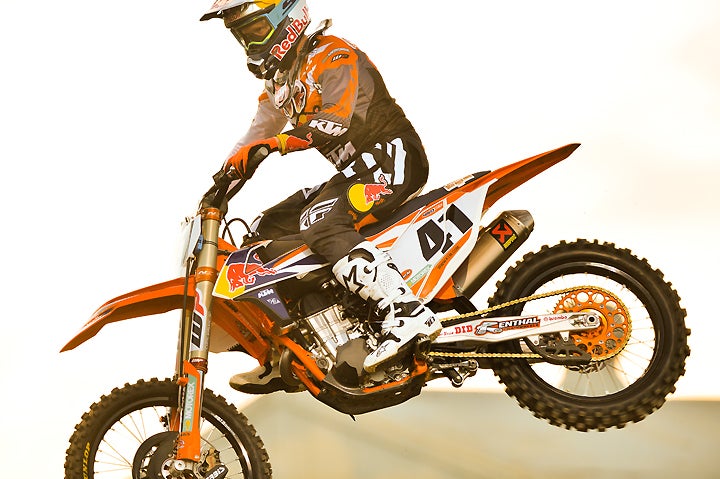
Steve Cox: There were some things going on with your social media where you started a different account for your religious posts, and you definitely quieted down about how much you shared Bible verses and whatnot online, so can you talk about what that is/was about?
Trey Canard: How do I phrase this? Let’s put it this way: You work for people, and they might not have the same views as you, and if they’re your employer, you can understand why they might not like you putting certain things out there, and I totally respect that. If I’m employing someone, and I feel like they’re doing something that could jeopardize something that I’m doing with my company, I’m going to try to amend it, or at least ask them to maybe try to change that. That’s kind of what happened, and I get that. I do. I respect that. I did my best to be who I am, also, and continue to try and share my faith in certain ways.
But on another level, I’m also becoming more aware of how important it is for me to live what I believe and to share it with my life and how I live it, rather than with my words or with my [social media] posts. I mean, there’s certainly a place for that, but I’d much rather impact someone in a way that they perceive who I am more than through a picture or a group of words. There are different elements to it, but that’s kind of where I’m at with it right now. I want to say that, obviously, that is my life. My faith is my life. I don’t think that will ever change. I just feel like I’m sharing more in a different way that will hopefully be more real and relate-able to people. I feel like sometimes a conversation with someone in a coffee shop where you can show them your values is far more valuable than theology kind of just posted everywhere. And I feel like there’s a place for that, too, and I’ll continue to do it on occasion, but just not in a way that will affect my employer.
Steve Cox: You’re basically talking about that quote from St. Francis of Assisi, aren’t you?
Trey Canard: Yeah, preach the gospel at all times, and only use words when necessary, or something like that…
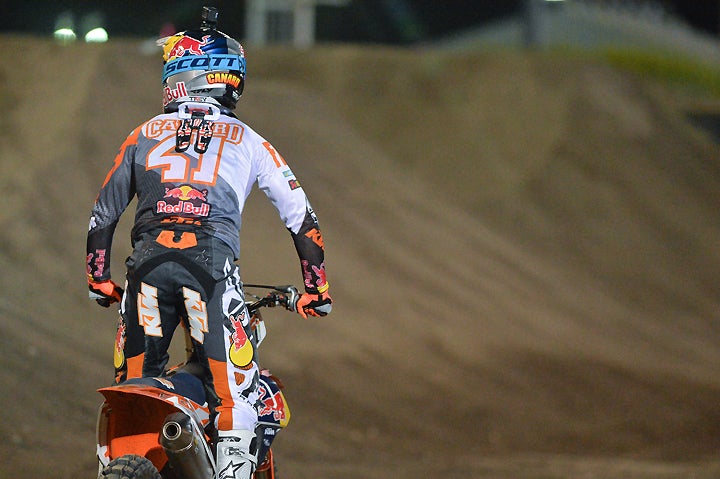
Steve Cox: Sometimes, as a non-believer, I get the feeling that people are professing their faith as a search for validation from others about what they believe rather than as a tool to help someone else. I’m not sure if that makes sense. Does that make sense to you?
Trey Canard: I think the moment you’re more concerned about the number of “likes” than the number of people really impacted, there’s something a little bit screwy about that, not just in sharing your faith, but in general. So that’s where I’m at. Some Christians don’t understand it. They want me to sort of “get back to it” [spreading the gospel on his social media], and I understand that, I really do, but there are only so many things you can say in a post online. What I really hope is that people are seeing it in my life, and that’s far more valuable than anything I could say in 300 characters or whatever it is.
Steve Cox: That’s beautiful.
Trey Canard: I think so, and I hope it really is.
Steve Cox: It sounds like–outside of the racetrack–what you’re searching for is peace. And it sounds like maybe you’re getting there.
Trey Canard: Yeah, absolutely… I have a beautiful wife [Hannah] who’s helped me see things differently, and I owe her a lot. Things in my personal life have gotten so much better, and I’m just grateful for it, you know?
 Your Privacy Choices
Your Privacy Choices